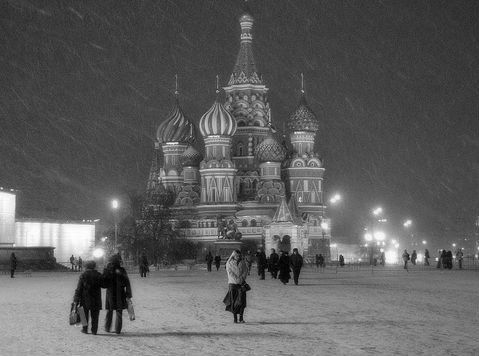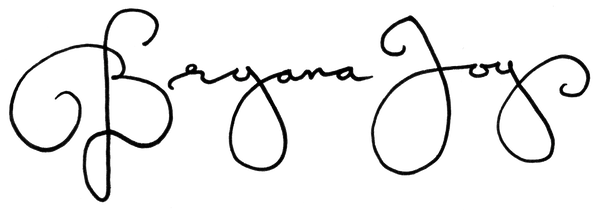
On Suffering, the Russian Soul, & the Kingdom of Heaven
Share
 It’s become a byword, the Russian tradition of suffering. Apparently everyone knows that misery permeates the works of the great writers and merits a substantial paragraph in even the most basic information about Russian literature. Wikipedia devotes an entire section of the Russian literature page to this very thing, stating, "suffering, often as a means of redemption, is a recurrent theme in Russian literature."
It’s become a byword, the Russian tradition of suffering. Apparently everyone knows that misery permeates the works of the great writers and merits a substantial paragraph in even the most basic information about Russian literature. Wikipedia devotes an entire section of the Russian literature page to this very thing, stating, "suffering, often as a means of redemption, is a recurrent theme in Russian literature."
Happily, I didn’t get the memo about that. A year ago, when I wrote about Imagination as Love, I still didn’t know that what I was writing about was at the very core of not only Chekhov’s writing, but Tolstoy’s too, and Gogol’s and Solzhenitsyn’s and Dostoevsky’s.
I didn’t read the Sparknotes, only the books. Only War and Peace, and How Much Land Does a Man Need? Only One Day in the Life of Ivan Denisovich, and The Overcoat, and The Grand Inquisitor, and half of Chekhov’s Stories. And one of the delightful things about missing the study guides is that you have no idea what to look for, so that when you do pick up a pattern all by yourself, it means something to you.
So it was for me, through pages and pages of the stories about tragedies without happy endings, and hunger that isn’t assuaged, and grief that doesn’t go away, and the long defeat of living. After a time, I sat back and said, “These stories are about suffering. They are all about suffering.” It seems simple enough to the initiated, but to go from not-knowing to knowing at last – there is an exquisite satisfaction in that.
Yet that wasn’t all. In these stories there was something else. The Russian grief is not purposeless. There is a colossal sort of reduction in suffering and in loss: it takes things down to essentials, strips away circumstances, reveals to a man what he truly is. There are hints in it of the possibility that suffering might usher in truth, precisely by ripping out lies.
And Christ. There is in these Russian stories a wild, confused, at times unorthodox fascination with Christ as humble, as suffering. As silent.
 This much I picked up on my own, but was hardly sure how to put it all together and make sense of it. Then last month I read my second Michael O’Brien novel, and found a man with the answers. A man who knows the historic Russian soul, and is intimately acquainted with the turbulent history of the 20th century. A man who knows the importance of traditional imagery better than anyone I can think of, who understands the vital significance of boats and of birds. A man who knows about kingfishers catching fire, and homesickness, and more than anything, who knows about the poor in spirit.
This much I picked up on my own, but was hardly sure how to put it all together and make sense of it. Then last month I read my second Michael O’Brien novel, and found a man with the answers. A man who knows the historic Russian soul, and is intimately acquainted with the turbulent history of the 20th century. A man who knows the importance of traditional imagery better than anyone I can think of, who understands the vital significance of boats and of birds. A man who knows about kingfishers catching fire, and homesickness, and more than anything, who knows about the poor in spirit.
The Father’s Tale is 1076 pages long, but after the first 100 pages or so, it goes by like a breath. Alex Graham is a Canadian bookseller whose college-aged son gets caught up in a cult group and goes missing from Oxford University. The plot follows the timorous, unadventurous Alex as he travels around the globe in the search for his son. It’s a storyline that never works out exactly as you expect, and yet somehow always works out in the best possible way. Like any author who’s turned out this much volume on a regular basis, O’Brien certainly leaves some holes in the book, in terms of weak sentences and things you wish you could rewrite or reconstruct. But then, so does Dickens, and it didn’t seem to ruin his legacy.
O’Brien and I are not on the same page as regards faith traditions, so I’m not entirely in sympathy with some portions of the book, and found some of them exasperating. However, the ultimate themes in here transcend our differences, because they aren’t about icons but ideas, and those ideas are rooted deep in the literature that we both love, beginning, perhaps, with the Bible itself.
One of the many things that the tepid and dispassionate Alex Graham learns in his travels is the mysterious and yet lucid beatitude of poverty.
“One becomes empty and poor, and in that state the Kingdom of Heaven is given to you,” someone tells Alex while he is en route to Siberia. “To become a poor man is the greatest thing that can be given to us. It is the foundation.”
O’Brien takes the old Russian preoccupation with suffering, and shows its redemptive purpose with astonishing clarity.
“Not what you expected, perhaps,” his friend tells Alex, after a particularly disappointing setback in his venture. “But it was a gift.”
“A gift?” Alex responds. “It seems a total failure.”
“What is failure? The only failure is to reject what God wishes to show us.”
 In a public lavatory in Moscow, Alex encounters a dying man. The man is sick and filthy and wasted with substance abuse, and does not wish to live. He is in the drain-hole of the world, he says, the nyet, nyet, nyet. But Alex is determined to rescue him and take him to a hospital, in spite of a disgruntled taxi driver and an unsympathetic nurse. When he learns that the man’s name is Alexei, the Russian form of Alex, he is a bit taken aback by the coincidence, and chooses to call him by the fond and familiar derivative, Alyosha, the pet name that Alex gave himself as a child and a budding Russophile.
In a public lavatory in Moscow, Alex encounters a dying man. The man is sick and filthy and wasted with substance abuse, and does not wish to live. He is in the drain-hole of the world, he says, the nyet, nyet, nyet. But Alex is determined to rescue him and take him to a hospital, in spite of a disgruntled taxi driver and an unsympathetic nurse. When he learns that the man’s name is Alexei, the Russian form of Alex, he is a bit taken aback by the coincidence, and chooses to call him by the fond and familiar derivative, Alyosha, the pet name that Alex gave himself as a child and a budding Russophile.
Alex doesn’t stay long with Alyosha after he sees him admitted to the hospital, but the significance of the incident pursues him throughout the rest of the story. It pursues him to strange and bizarre places, as he finds himself on a train attacked by militant protesters, stranded for weeks with a widowed Russian doctor and her two fatherless sons in a tiny village on the shores of Lake Baikal, and, in an unexpected turn of events, tortured by government intelligence officials in a windowless cell in Siberia. All along, O’Brien is probing deeper and deeper into the Russian psyche, into the legacy of the Soviet era, into the corruption of East and West.
In one scene, Alex speaks to an agnostic Russian with words that are far beyond him, although he doesn’t know it yet.
“Irina, do you remember when we first met, that night on the train? You quoted Pushkin. You said that in our times man was either tyrant or traitor or prisoner.”
“I have not changed my opinion,” says the woman with a hint of bitterness. “But the Christian is a prisoner in Christ and with Christ and thus he is the only free man on the planet,” Alex says triumphantly. But he does not yet know what he is talking about.
“But the Christian is a prisoner in Christ and with Christ and thus he is the only free man on the planet,” Alex says triumphantly. But he does not yet know what he is talking about.
It is in Alex’s greatest crisis of suffering that the ultimate gift is given to him. He wakes up brutalized in a freezing cell, completely dispossessed, and sees a man beside him in an even worse condition. Although Alex feels like his body has become one great wound, he reaches out to other person to try to offer some comfort.
“Who are you?” Alex breathed.
“Alyosha,” the lips whispered in reply.
“We are suffering, Alyosha,” Alex sobbed, placing the palm of his hand on the man’s forehead. “But we are not alone.”
The flesh of the forehead was riddled with holes. “You,” said the prisoner, are Alyosha.”
He touched the holes in the hands and feet of the prisoner. He lightly touched the face that a rifle butt had shattered. The hands of the prisoner drew his fingers to the wound in his heart, and his heart was a fountain.
And blessed are the poor in spirit. For theirs is the kingdom of heaven.
